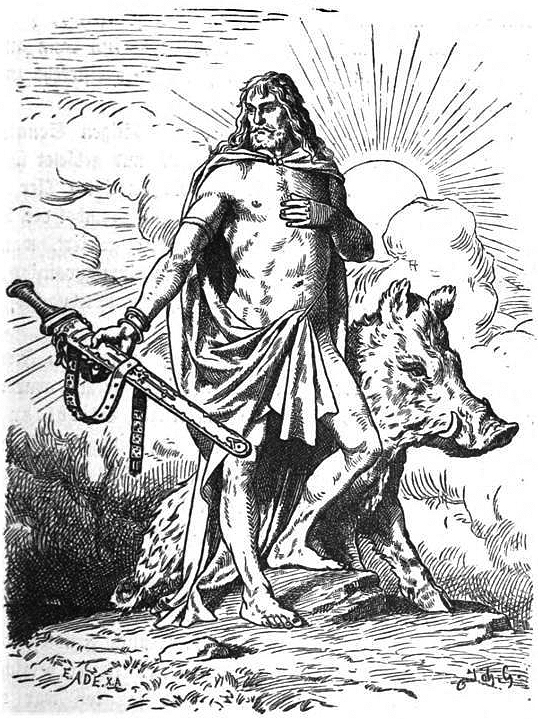Peace and Safety For Your Twentieth of October – Tips on Epicurean Reasoning from Philodemus
Peace and Safety to the Epicureans of today, no matter where you might be!
Every day, not just the Twentieth, is a good day to remember that Epicurean philosophy teaches a distinctive reasoning process that focuses on the evidence of reality rather than the manipulation of abstractions.
Much of the surviving portion of Philodemus’ “On Methods of Inference” is devoted to this topic. The following passage illustrates the point, showing that the Epicurean “method of analogy” focuses on deducing truth from real-life experiences, rather than reliance on overbroad presuppositions or abstract syllogisms:
Whenever we infer from the proposition, “Men in our experience are mortal,” to the proposition, “Men everywhere are mortal,”
we do not presuppose [emphasis added] that the men about whom we infer are like those in our experience in respect to mortality, nor that they are like them in all other ways but are different in respect to mortality. Rather, from the fact that all men in our experience are similar even in respect to mortality, we infer that all men universally are liable to death, since nothing opposes the inference or draws us a step toward the view that men do not admit of death. Appealing to this similarity we declare that in respect to mortality the men outside our experience are similar to those within our experience.
In other words, we do not presuppose that men are mortal because we have been handed by god or by reason some formula that says “the essence of man is to be mortal” and we can safely conclude on that abstraction alone that all men or mortal.
Instead, the Epicurean observes the characteristics of all men in our experience, he observes that they have all died or are subject to death, and by analogy from past and current observations the Epicurean concludes that all men, even those he has not yet seen, are mortal.
The “tip on reasoning” that Philodemus then proceeds to tells us is that the method of inferring truth by analogy must be handed properly. We must carefully consider our observations and ensure that the conclusions we draw are based only on observations that are truly similar:
Inferences should be made from objects that are most closely related and from those that are as similar as possible; and one should not use broad similarities, disregarding those qualities which correspond more closely. For example, the inference is best made from particular men to those especially similar to them, and from the class of men to the class of things which follows the whole class of men, nothing inclining us the slightest bit to the contrary; from animals of a certain species to those especially like them, and from a class to the classes close to it; and from a body of a certain kind to another of the same kind, and from the generic body to the generic; from an entity of a certain nature to those especially like it, and from the generic entity, that which is a constant attribute of the greatest number of things, apart from which we are not able to conceive a common existence, to the generic.
It is key to realize that no teacher of Aristotelian essentials or categories, no teacher of Platonic formalism, and no teacher of religious revelation, can pre-define for us the “classes” or “categories” or “essences” or “forms” by which we must categorize our observations.
Despite the insistence of false philosophers and preachers, classes, categories, essences, ideals, and revelation do not truly exist in Nature. Such things as “classes” are only tools which we choose to employ to work with and process our observations, and nothing more. The truth is that Nature gives us only our faculties of observation (the five senses, the anticipations, and the “feelings” – pain and pleasure) by which to have direct contact with reality. It is for that reason that Epicurus held that these – rather than “logic” or “reason” comprise the “canon of truth.”
Divorce logic and reason from the evidence on which they must rely – the evidence from the “canon of truth” – and you are on the road to disaster. The road to happiness requires us to reason using the method of analogy – always relying squarely and firmly on the observation of our natural faculties, rather than relying on the dreams of false philosophers and preachers.
Happy Twentieth!
_________
As Seneca recorded: Sic fac omnia tamquam spectet Epicurus! So do all things as though watching were Epicurus!
And as Philodemus wrote: “I will be faithful to Epicurus, according to whom it has been my choice to live.”
Note: The image associated with this posted is that of Freyr, the Norse god of Peace and Pleasure.

